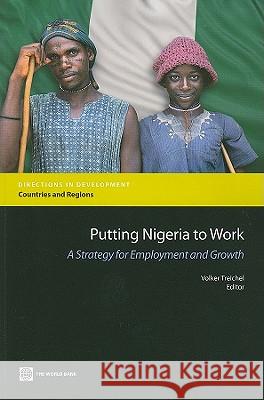Putting Nigeria to Work: A Strategy for Employment and Growth » książka
Putting Nigeria to Work: A Strategy for Employment and Growth
ISBN-13: 9780821380727 / Angielski / Miękka / 2010 / 273 str.
Public debate in Nigeria on the country's progress since its return to democracy in 1999 has been dominated by two seemingly opposite themes. The first theme is the strong growth performance of the non-oil economy. This success has been marked by sharp increases in agriculture, trade, and construction and by the emergence of new industries in the financial, telecommunications, and entertainment sectors, supported by sound macroeconomic policies and structural reforms. The second, opposing theme is the seeming failure of Nigeria's much improved economic performance to reduce unemployment, especially among the young. Rising levels of unemployment have increased militancy among the young and impacted negatively on public order. 'Putting Nigeria to Work: A Strategy for Employment and Growth' looks at the ways in which Nigeria's improved economic performance has impacted the labor market. A number of relevant factors are carefully examined and analyzed, including industrial policy and the investment environment, the effects of restrictive trade policies on growth, and the ability of the technical and vocational education system to address the country's skills gap. The book proposes a strategy that will allow Nigeria to increase the availability of quality jobs, reduce rising youth unemployment, and sustain and further accelerate the country's economic performance and growth. At the core of this strategy are targeted interventions aimed at removing binding constraints to growth in sectors of the economy that are already growing fast, but have the potential to grow faster and have significant employment-creating potential.











